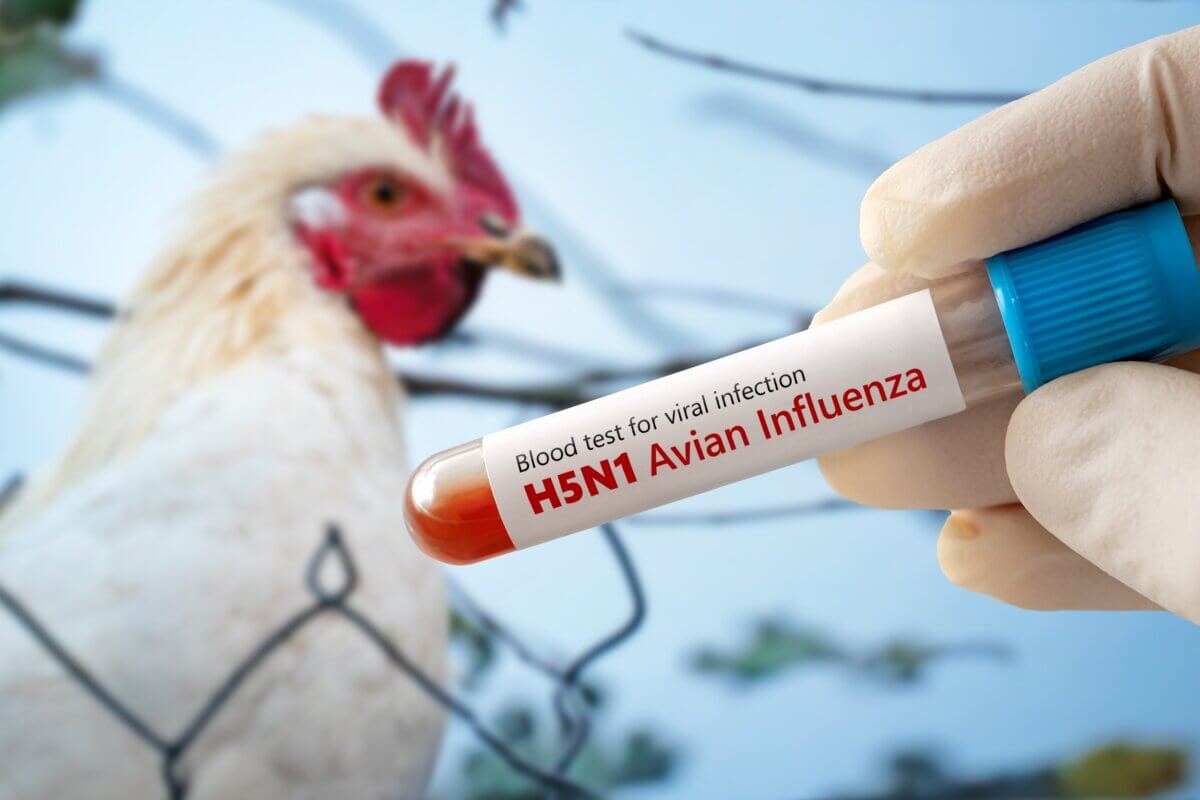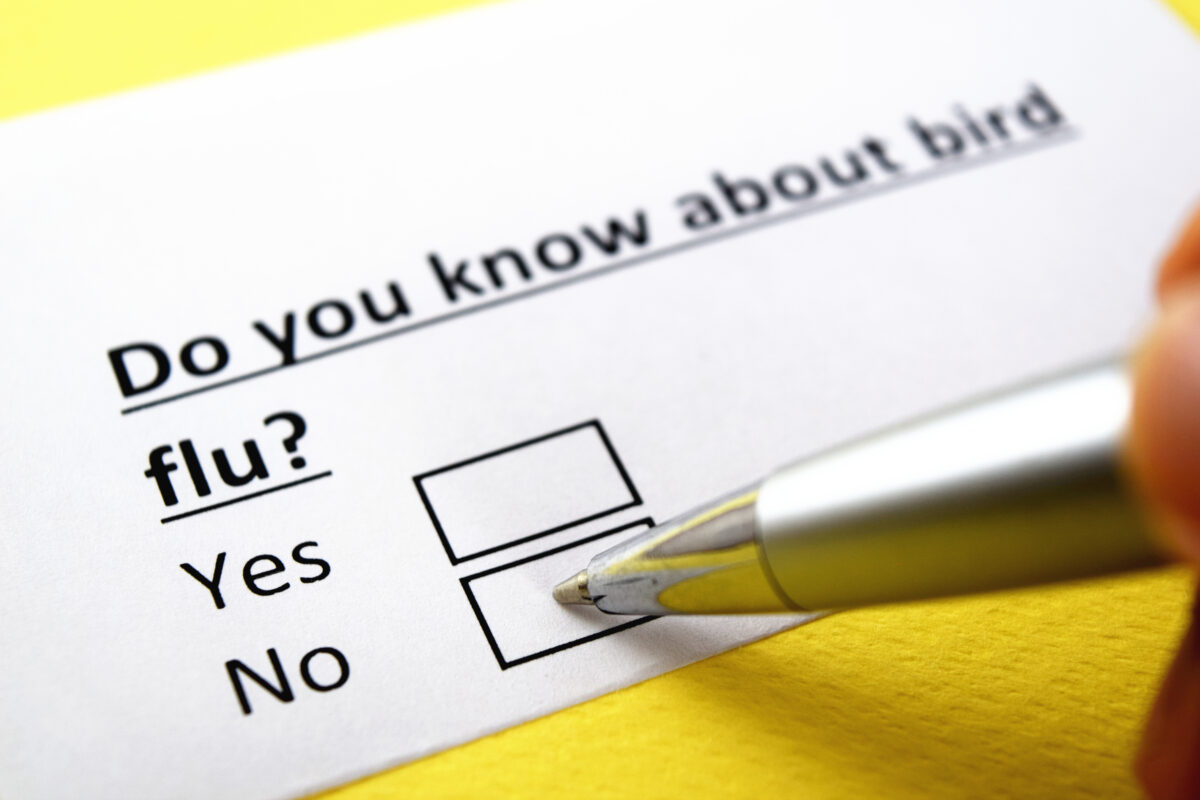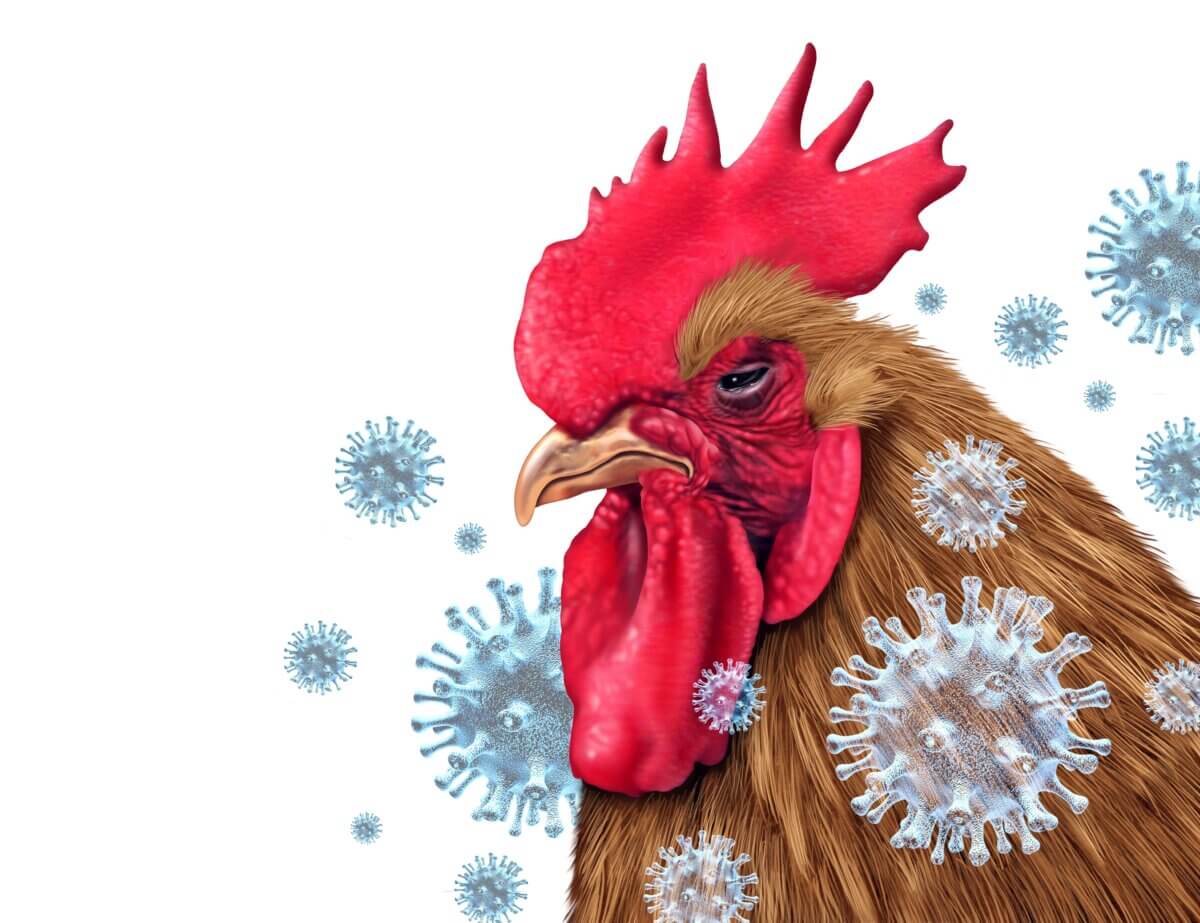
Many Americans would be reluctant to receive a bird flu vaccination. (Melnikov Dmitriy/Shutterstock)
In a nutshell
- A significant portion of Americans (61.4%) are unwilling or unsure about taking the bird flu vaccine, and 55.6% resist or question changing their dietary habits, posing serious challenges for public health efforts.
- While many have heard of bird flu, only 26.1% understand that it can spread to humans, and only 18.8% are aware that the H5N1 virus has been found in cattle, revealing a concerning knowledge gap about the virus and safety practices.
- Political polarization plays a significant role in resistance to preventive measures, with Republicans and Independents more likely to oppose both vaccination and dietary changes. Additionally, rural residents, despite being at higher risk, show greater resistance to these measures than urban populations.
NEW YORK — Warnings about bird flu transmission have been popping up on headlines across the globe. Public health concerns over bird flu, however, could face serious roadblocks as most Americans remain either unwilling or uncertain about taking protective measures against the spreading virus.
A startling 61.4% of Americans would either refuse or are unsure about taking a vaccine for highly pathogenic avian influenza (HPAI), even if recommended by the Centers for Disease Control and Prevention (CDC). Similarly, 55.6% would resist or question changing their dietary habits despite potential risks from consuming certain animal products.
These findings come from a national survey of 10,000 Americans conducted in August 2024, as cases of bird flu continue to emerge across the United States. The study, published in the American Journal of Public Health, finds concerning results over public awareness and willingness to take preventive action against this growing health threat.
The researchers note that the gap between public health experts’ warnings and the public’s understanding of the issue jeopardizes the country’s ability to manage and prevent the further spread of the virus effectively.
Public Awareness Gap

While 64.4% of survey respondents had heard of bird flu, only about a quarter (26.1%) understood that it could spread to humans, and even fewer (18.8%) were aware that a subtype (the H5N1 virus) had been detected in cattle.
By the time of the survey, 66 human cases had been confirmed in the United States in 2024, with most occurring among people with occupational exposure to sick animals. However, in September 2024, the first case without known occupational exposure was diagnosed in Missouri, suggesting potential unknown transmission pathways.
Many Americans also demonstrated limited understanding of food safety practices that could reduce infection risk. Less than 54% knew that pasteurized milk is safer than raw milk, despite recent recalls of H5N1-contaminated raw milk in California. Only about 71% understood that cooking meat at high temperatures could eliminate harmful viruses like H5N1.
Political Divide Deepens Response
Political affiliation influenced attitudes toward preventive measures. Democrats were significantly more likely to accept both vaccination and dietary changes compared to Republicans and Independents.
When controlling for sociodemographic factors, the study found Republicans were 3.5 times more likely to resist vaccination and 1.56 times more likely to resist dietary changes compared to Democrats. Independents showed similar patterns, being 2.69 times more likely to resist vaccination and 1.43 times more likely to resist dietary changes than Democrats.
Researchers suggest these political divisions reflect broader societal trends where skepticism of government recommendations runs deeper among conservative voters.

Location also played a significant role in willingness to follow public health guidance. Rural residents, who ironically may have higher exposure risk due to proximity to agriculture and livestock, showed greater resistance to both vaccination and dietary changes than urban dwellers.
Only 33.9% of rural Americans indicated they would accept a CDC-recommended vaccine, compared to 39.8% of urban residents. Similarly, just 38.9% of rural respondents would change dietary habits based on recommendations, versus 45.8% of urban dwellers.
Trust in government health agencies emerged as another critical factor. The study revealed limited trust in the CDC, Food and Drug Administration, and U.S. Department of Agriculture among nearly 40% of respondents.
When people don’t trust experts, they’re more likely to ignore their advice and resist taking necessary steps to protect their health, even if those actions are meant to prevent the spread of dangerous diseases like H5N1.
Pandemic Fatigue Complicates Response
After years of COVID-19 messaging and restrictions, many Americans appear exhausted by public health campaigns. The study found 38% of respondents reported feeling “mentally and emotionally drained by the constant cycle of health warnings and changes to daily life.”
This pandemic fatigue may further complicate efforts to engage the public in preventive measures against bird flu, even as the threat grows more serious.
Managing the current avian influenza threat and preparing for future infectious disease complications requires urgent action. Study researchers recommend clear, targeted messaging that engages local leaders and academic partners already working in communities.
In order to avoid a major public health crisis, the United States needs to bolster its health agencies, while also educating and engaging the public, about the dangers of consuming unpasteurized milk and the importance of vaccination. Without addressing the underlying issues of political polarization, rural-urban divides, and eroded trust in health institutions, efforts to control this emerging threat may fall short.
Paper Summary
Methodology
Researchers conducted a population-representative survey of 10,000 U.S. residents between August 5-15, 2024, using an in-depth sampling framework with intentional oversampling of rural populations (5,000 respondents). The survey assessed public awareness of avian influenza, understanding of its transmission to humans, knowledge of affected species, perception of personal risk, food safety knowledge, and willingness to take preventive measures. Respondents were asked if they would take a vaccine if recommended by the CDC and if they would change dietary behavior based on CDC recommendations. The researchers used weighted frequencies and percentages for descriptive statistics and analyzed associations between variables.
Results
The study found that while 64.4% of respondents had heard of HPAI, only 26.1% understood it could spread to humans, and just 18.8% knew H5N1 had been detected in cattle. Regarding preventive measures, 28.7% of respondents were resistant to taking a potential H5N1 vaccine, with another 32.7% uncertain. Similarly, 27% expressed unwillingness to follow dietary guideline changes. Political affiliation strongly influenced willingness to adopt preventive measures, with Republicans and Independents significantly less likely than Democrats to support both vaccination and dietary changes. Trust in government health agencies was limited among nearly 40% of respondents. Rural Americans were less likely to accept public health measures compared to urban counterparts, with only 33.9% of rural residents willing to accept a CDC-recommended vaccine versus 39.8% of urban residents.
Limitations
The authors acknowledge that sampling and self-report bias may have influenced the findings. The study represents a snapshot of public opinion during August 2024 and may not reflect changes in awareness or attitudes that occurred after more cases were reported. Additionally, the hypothetical nature of questions about vaccines and dietary changes may not perfectly predict actual behavior if such recommendations were implemented.
Funding and Disclosures
Funding for this study was provided by the CUNY Graduate School of Public Health and Health Policy in New York. The authors declared no conflicts of interest. The study was found to be exempt by the institutional review board of Emerson College.
Publication Information
The paper titled “The American Public’s Disengagement With Highly Pathogenic Avian Influenza (HPAI): Considerations for Vaccination and Dietary Changes” was authored by Rachael Piltch-Loeb and colleagues from CUNY Graduate School of Public Health and Health Policy. It was published online ahead of print on April 17, 2025, in the American Journal of Public Health.








“vaccines”, yeah… untested with side effects ignored to criminal extent, dna altering stuff inserted past my bodies’ defenses straight into my blood… what could possibly go wrong?
I like to French kiss a cow to show people you are Scare mongering.